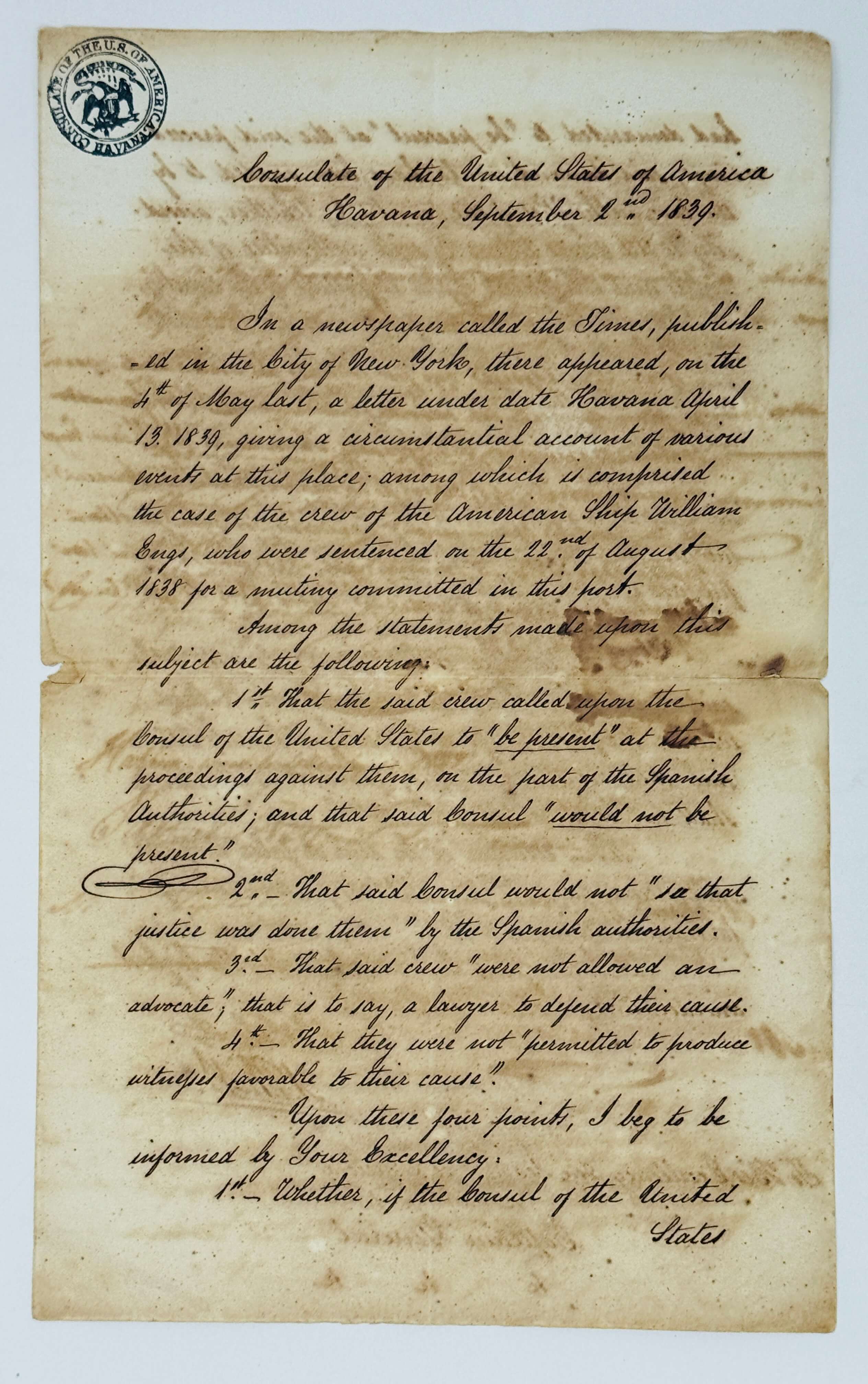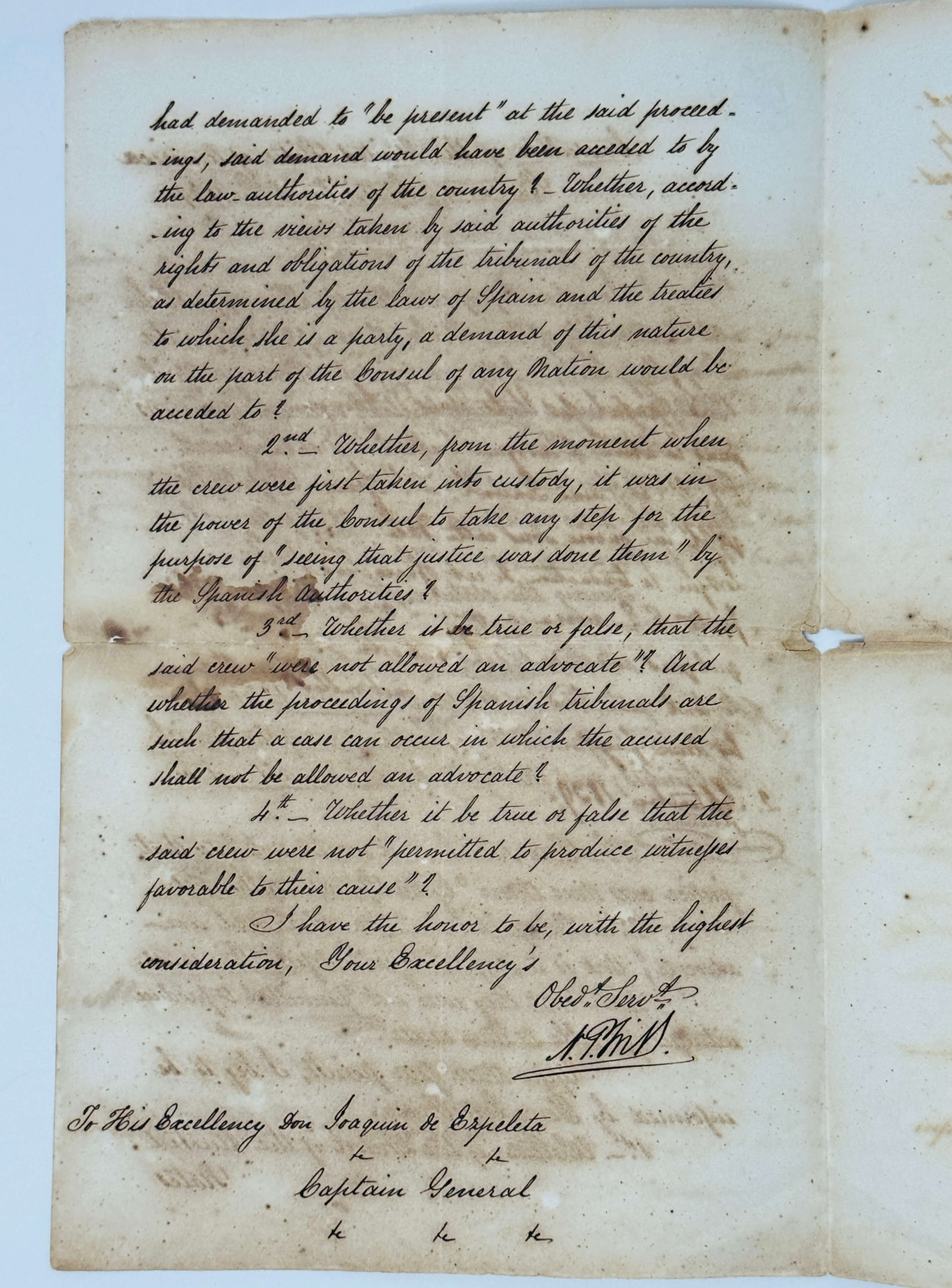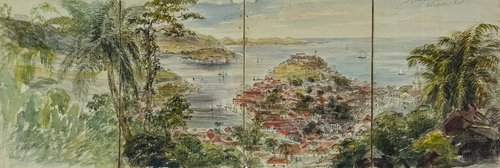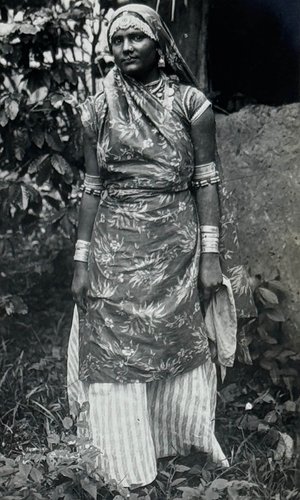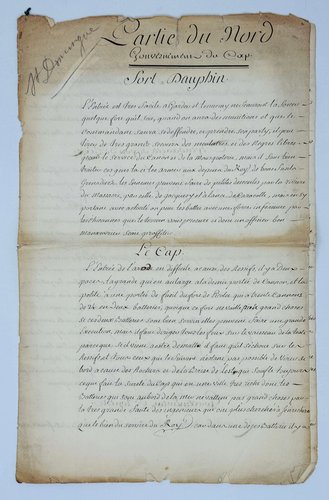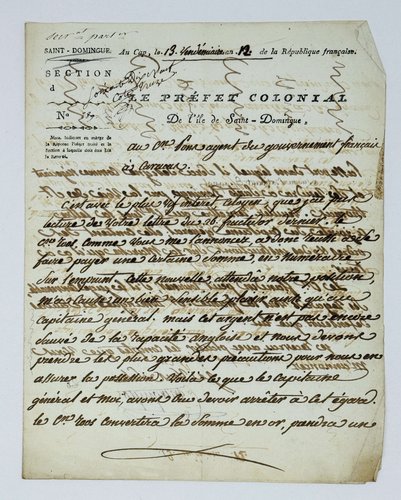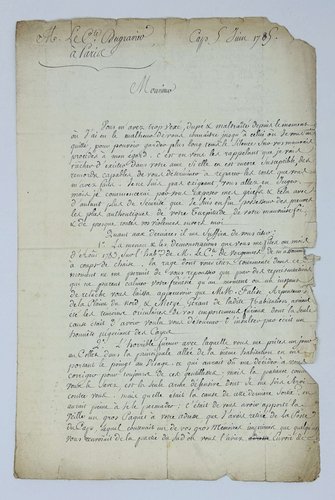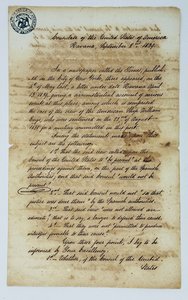
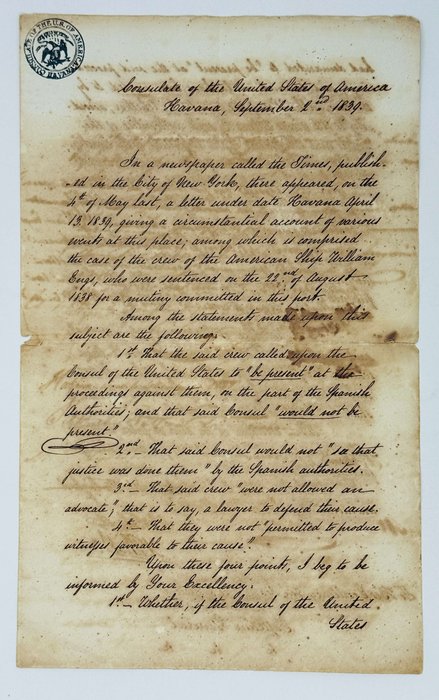
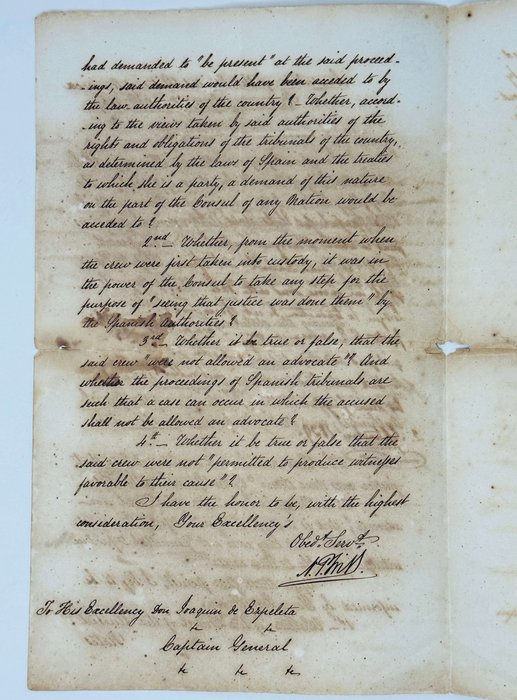
#MD29
1839
Folio bifolium (ca. 31.5 x 19.5 cm or 12 ¼ x 7 ½ in). 2 pp. Brown ink on creamy wove paper. With black ink stamp reading “Consulate of the U.S. of America, Havana” in upper left corner on recto of first leaf. Paper age-toned, occasional offsetting on second leaf, fold marks, minor tears and losses along fold marks not affecting text, but overall a very good manuscript.
An interesting letter written by the United States Consul of Havana, Nicholas Trist, to the Captain General of Cuba, Joaquín Ezpeleta (1788-1863), regarding the trial of the crew of the American ship William Eng, who were arrested for committing mutiny in the port of Havana.
Nicholas Trist served as US Consul in Havana, Cuba, between 1833 and 1840. He was deeply unpopular with American ship captains and crews, who pushed for his removal, as they thought he was not interested in defending their interests. During his time as US Consul, Trist also was involved in creating falsified documents to mask the illegal sale of enslaved Africans. Despite this, he was later appointed Chief Clerk of the Department of State (1845-1847) and played a key role during peace negotiations following the Mexican-American War (1846-1848); (Wikipedia).
Trist writes to the Captain General of Cuba regarding claims that an American crew that was arrested for mutiny in Havana without the presence of the US Consul, despite being requested; that the “US Consul would not ‘see that justice was done’”; that the crew were not permitted a lawyer to represent them; and that the crew was not allowed to “produce witnesses favorable to their cause.” Trist then asks the Captain General to clarify if the US Consul, or any nation, would have even been allowed to be present during the proceedings; if it was within the power of the US Consul to “see that justice be done”; and if the points regarding the lack of lawyer or favourable witnesses were true or false.
As a result of the incident with the William Engs, among others, ship masters and owners convened in New York in August 1839 to push for the removal of Trist from office. In 1840, the Committee of Commerce in the House of Representatives held a hearing regarding the conduct of Trist in his capacity as US Consul, although the committee did not make any definitive findings (Evening Post (New York), 8 August 1840, p. 2).
Overall, an interesting letter providing insight to the conduct of Nicholas Trist during his tenure as US Consul of Havana.

